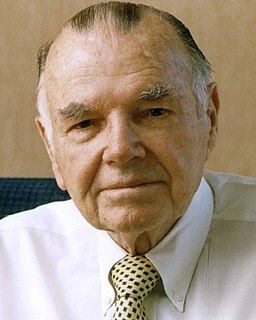A Quote by Bill Gates
There's a basic philosophy here that by empowering...workers you'll make their jobs far more interesting, and they'll be able to work at a higher level than they would have without all that information just a few clicks away.
Quote Topics
Related Quotes
We need to find ways to transform the more than 60 million service jobs, which make up 45 percent of U.S. employment, in the same way - rewarding workers financially, encouraging and empowering creative participation, creating professional communities, and so on. We can look to any number of new companies - from Zappos, to Starbucks, to American Apparel - for examples of how this idea might play itself out. We need to do more to make service jobs into higher-paying family-supporting jobs of the future.
When a man tells you that he got rich through hard work, ask him whose. There's no evidence that more people with more skills would produce more jobs. There's a great deal of evidence that they produce more competition for the jobs that exist, and in turn, drive down the cost of labour. Nothing pleases a corporation more than having five people compete for the same job. Competitiveness means good times for machines, not workers, because our tax systems privilege machines over workers.A lost job can put a smile on any shareholder's face.
The financial crisis just made the hole deeper, which is why our stimulus needs to be both big and smart, both financially and educationally stimulating. It needs to be able to produce not only more shovel-ready jobs and shovel-ready workers, but more Google-ready jobs and Windows-ready and knowledge-ready workers.
In my work, the information is the least important part. It's there, and the work wouldn't mean the same thing without it, but it isn't structured around the information. The most interesting part to me is the visual play... looking at this little universe of representation that I can make out of the world.
The job market of the future will consist of those jobs that robots cannot perform. Our blue-collar work is pattern recognition, making sense of what you see. Gardeners will still have jobs because every garden is different. The same goes for construction workers. The losers are white-collar workers, low-level accountants, brokers, and agents.
The 21st century looks different. It's been very disruptive. It has created a lot of insecurity. We have to adjust to that, because the 21st century has real promise. Now, the higher-paying jobs of this new century are fantastic. The problem is, you have to have some level of higher education, maybe not a four-year degree, but some level of higher education, to get those jobs.



































